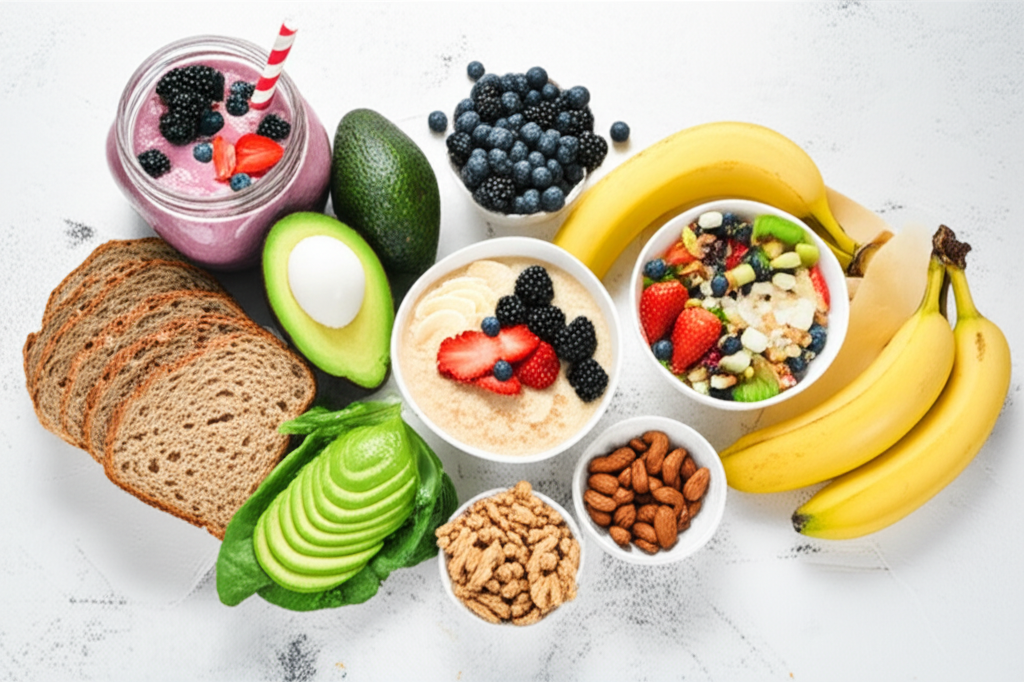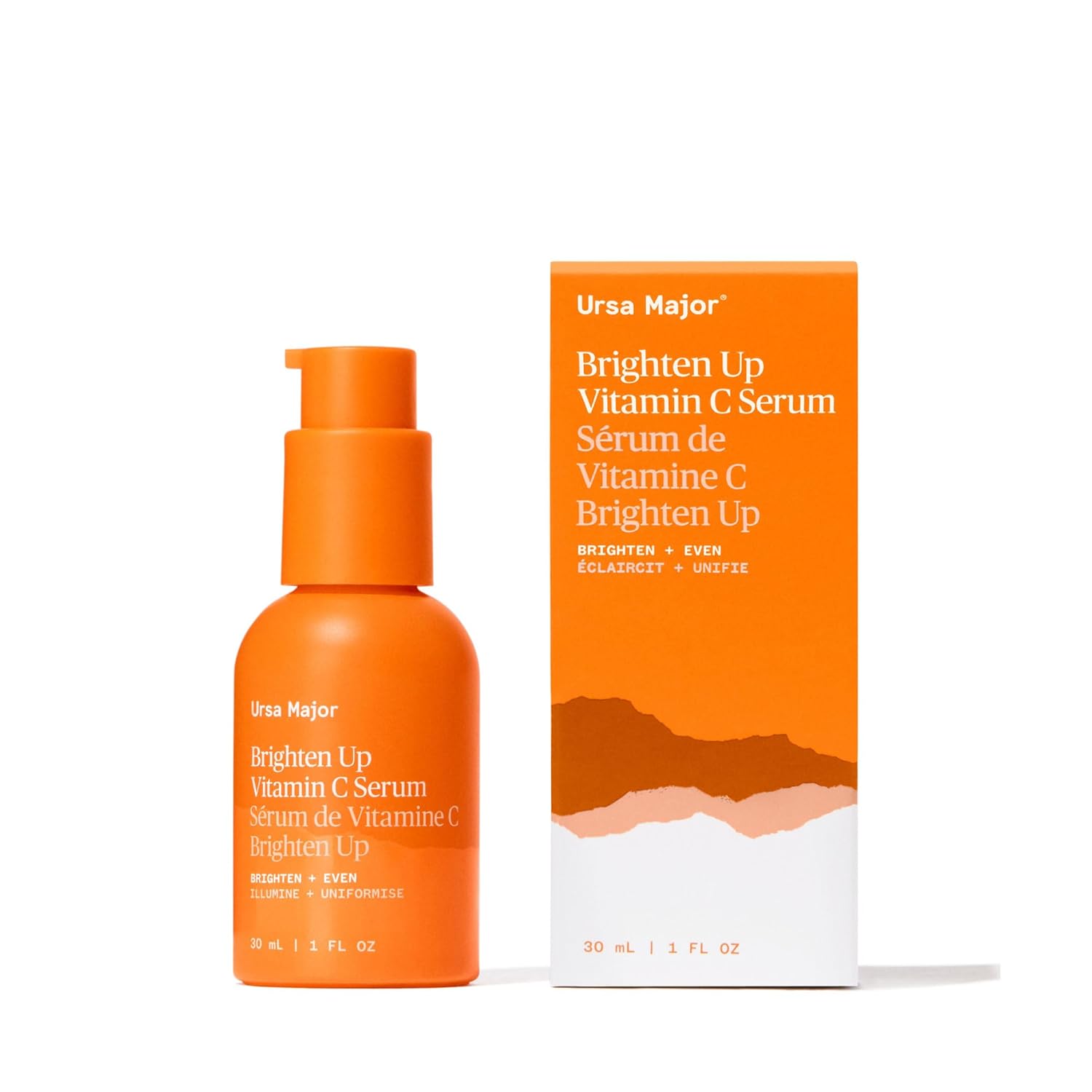Must-Have Diet Plan – Effortless and healthy weight gain is achievable with a simple, balanced diet plan focused on nutrient-dense foods and consistent eating habits.
Do you ever dream of feeling stronger and more energized, but the thought of changing your eating habits feels overwhelming? You’re not alone! Many of us struggle to find the right way to nourish our bodies, especially when it comes to gaining healthy weight. It’s a common goal, and it can feel confusing with so much information out there. But what if I told you it doesn’t have to be complicated? This guide is here to show you exactly how to create a delicious and effective plan that works for you. Get ready to discover how simple it can be to build a healthier, stronger you, one easy step at a time!
Why Healthy Weight Gain Matters

Gaining weight isn’t just about adding pounds; it’s about adding healthy muscle and vital nutrients to support your overall well-being. Sometimes, we find ourselves underweight due to various factors like a fast metabolism, high activity levels, or simply not eating enough calories throughout the day. Low weight can sometimes lead to feeling fatigued, a weakened immune system, and a lack of energy. Focusing on gaining weight healthily means building strength, feeling more robust, and improving your body’s ability to function at its best. It’s about creating a body that feels strong and resilient from the inside out.
The Foundation of a Healthy Gain Plan
Getting started with a healthy weight gain plan is all about building a solid foundation. This means focusing on what you eat, when you eat, and ensuring your body gets the right kind of fuel. It’s not about eating junk food; it’s about enjoying delicious, nutrient-rich foods that help your body thrive.
1. Understanding Calorie Surplus (The Gentle Way)
To gain weight, your body needs to consume more calories than it burns. This is called a calorie surplus. However, the key to healthy gain is to ensure these extra calories come from nutritious sources. We’re not looking for rapid, unhealthy spikes. A modest surplus of around 250-500 calories per day is a great starting point for most people. This allows for gradual, sustainable weight gain without feeling stuffed or overloaded.
Think Quality Over Quantity: Instead of just adding extra servings of anything, focus on adding calorie-dense, nutrient-rich foods.
Listen to Your Body: Don’t force yourself to eat if you’re not hungry, but try to spread your meals and snacks throughout the day.
Gradual Increase: Slowly add these extra calories over a few weeks to allow your body to adjust comfortably.
2. Nutrient Density is Your Best Friend
Nutrient-dense foods pack a lot of vitamins, minerals, and beneficial compounds into a relatively small amount of calories. These are the stars of your healthy weight gain diet. They provide the building blocks your body needs to grow healthy tissue, including muscle.
Here are some examples of nutrient-dense foods to include:
Healthy Fats: Avocados, nuts (almonds, walnuts, cashews), seeds (chia, flax, sunflower), olive oil, fatty fish (salmon, mackerel).
Lean Proteins: Chicken breast, turkey, lean beef, fish, eggs, Greek yogurt, beans, lentils, tofu.
Complex Carbohydrates: Oats, brown rice, quinoa, sweet potatoes, whole-wheat bread, fruits, and vegetables.
Adding these to your meals and snacks will provide essential energy and nutrients while contributing to a healthy calorie surplus.
3. Consistency is Key
Your body thrives on routine. Eating at regular intervals helps ensure a steady supply of nutrients and energy, which is crucial for healthy weight gain. Aim for three balanced meals a day, with two to three snacks in between. This approach prevents you from feeling overly full at any one meal and keeps your metabolism gently active.
Don’t Skip Meals: Even if you’re busy, try to have something, even a snack, to keep those calories coming in.
Plan Ahead: A little planning can go a long way. Prepare snacks or meals in advance to avoid reaching for less healthy options when hunger strikes.
Building Your Delicious Diet Plan: The Core Components
A successful diet plan for healthy weight gain is built on a foundation of balanced macronutrients and smart food choices. Let’s break down how to construct your meals to maximize nutrient intake and support your goals.

1. Power Up with Protein
Protein is essential for building and repairing tissues, including muscle mass, which is a key component of healthy weight gain. Aim to include a good source of protein in every meal and snack.
Good Protein Sources:
Animal-Based: Chicken, turkey, lean beef, fish (salmon, tuna), eggs, dairy (milk, yogurt, cheese).
Plant-Based: Lentils, beans, chickpeas, tofu, tempeh, nuts, seeds.
Protein helps you feel full longer, but it’s also the building block for a stronger body. It’s the essential ingredient for putting on lean mass rather than just fat.
2. Embrace Healthy Fats for Extra Energy
Healthy fats are calorie-dense and packed with essential nutrients. They are a fantastic way to increase your calorie intake without feeling overly full.
Excellent Fat Choices:
Avocado: Slice it onto toast, add it to salads, or blend it into smoothies.
Nuts and Seeds: A handful of almonds, walnuts, or a tablespoon of chia seeds can easily boost calories and nutrients. Nut butters are also a great option!
Olive Oil and Other Healthy Oils: Use them for cooking, in salad dressings, or drizzled over vegetables.
Fatty Fish: Salmon, mackerel, and sardines are rich in omega-3 fatty acids, which are great for your brain and heart.
These fats provide sustained energy and help your body absorb certain vitamins.
3. Don’t Forget Complex Carbohydrates
Carbohydrates provide your body with the energy it needs to function and fuel your workouts if you’re active. Opt for complex carbohydrates, which are digested slowly, providing sustained energy and fiber.
Smart Carb Picks:
Whole Grains: Oats, quinoa, brown rice, whole-wheat bread, and pasta.
Starchy Vegetables: Sweet potatoes, potatoes, corn, peas.
Fruits: Bananas, apples, berries, mangoes.
These carbohydrates are your body’s preferred energy source and are crucial for fueling your daily activities and any exercise you might be doing.
Sample Weekly Meal Plan for Healthy Gain
This sample plan is designed to give you delicious, nutrient-dense options throughout the day, ensuring you hit your calorie and nutrient targets effortlessly. Remember, this is a template. Feel free to swap foods based on your preferences and what’s available, keeping the focus on nutrient density and balanced macros.
Monday
Breakfast: Oatmeal made with whole milk or soy milk, topped with a handful of almonds, sliced banana, and a drizzle of honey.
Snack 1: Greek yogurt with berries and a tablespoon of chia seeds.
Lunch: Large salad with grilled chicken breast, mixed greens, avocado, cucumber, tomatoes, and an olive oil-based dressing. Side of whole-wheat bread.
Snack 2: Apple slices with almond butter.
Dinner: Baked salmon with roasted sweet potatoes and steamed broccoli.
Tuesday
Breakfast: Scrambled eggs (2-3) with spinach and whole-wheat toast. Glass of whole milk.
Snack 1: A small handful of mixed nuts and dried fruit.
Lunch: Lentil soup with a whole-grain roll and a side salad.
Snack 2: Cottage cheese with pineapple chunks.
Dinner: Lean ground turkey stir-fry with brown rice and mixed vegetables (bell peppers, snap peas, carrots).
Wednesday
Breakfast: Smoothie made with whole milk or plant-based milk, a scoop of protein powder, a banana, and a tablespoon of peanut butter.
Snack 1: Hard-boiled eggs (2).
Lunch: Leftover turkey stir-fry and brown rice.
Snack 2: A pear and a small block of cheese.
Dinner: Grilled chicken breast with quinoa and roasted asparagus.
Thursday
Breakfast: Whole-wheat pancakes or waffles topped with fresh fruit and a dollop of Greek yogurt.
Snack 1: A banana with a spoonful of almond butter.
Lunch: Tuna salad sandwich on whole-wheat bread with lettuce and tomato. Side of baby carrots with hummus.
Snack 2: A small bowl of unsalted cashews.
Dinner: Lean beef stew with potatoes, carrots, and celery.
Friday
Breakfast: Overnight oats made with rolled oats, milk, chia seeds, and mashed berries.
Snack 1: A glass of milk and a handful of walnuts.
Lunch: Leftover beef stew.
Snack 2: A peach with a few slices of cheese.
Dinner: Homemade pizza on a whole-wheat crust with plenty of vegetables and lean protein (e.g., chicken or lean ham), with extra cheese.
Saturday
Breakfast: French toast made with whole-wheat bread and eggs, served with fruit.
Snack 1: A smoothie with milk, protein powder, and spinach.
Lunch: Chicken salad on whole-wheat crackers with a side of cucumber slices.
Snack 2: A handful of trail mix (nuts, seeds, dried fruit).
Dinner: Steak with baked potato (add butter and sour cream for extra calories) and green beans.
Sunday
Breakfast: Omelet with cheese, mushrooms, and onions. Whole-wheat toast.
Snack 1: Greek yogurt with granola.
Lunch: Leftover steak and baked potato.
Snack 2: A small avocado with a sprinkle of salt and pepper.
Dinner: Roasted chicken with mashed sweet potatoes and a side salad with avocado.
Hydration Reminder: Drink plenty of water throughout the day, but try not to fill up on water right before meals, as it can reduce your appetite.
Smart Snack Ideas to Boost Calories
Snacks are your secret weapon for healthy weight gain! They’re perfect opportunities to add extra calories and nutrients between meals without feeling overwhelmed.
Here are some effortless snack ideas:
Trail Mix: A customizable mix of nuts, seeds, and dried fruits.
Nut Butters: Spread peanut, almond, or cashew butter on crackers, fruit slices, or enjoy a spoonful on its own.
Full-Fat Dairy: Greek yogurt, cottage cheese, or a glass of whole milk.
Avocado Toast: A slice of whole-wheat toast topped with mashed avocado and a sprinkle of salt and pepper.
Smoothies: Blend fruit, protein powder, yogurt or milk, and a healthy fat like nut butter or seeds.
Hard-Boiled Eggs: Portable and packed with protein.
Cheese and Crackers: Choose whole-grain crackers and a good source of cheese.
The goal is to make these snacks count – choose options that offer more than just empty calories.
Fueling Your Body: What to Drink
What you drink can significantly impact your calorie intake and nutrient absorption. While water is essential for overall health, certain beverages can help you reach your weight gain goals.
Best Beverage Choices:
Whole Milk or Fortified Plant-Based Milks: These provide calories, protein, and calcium. Opt for full-fat versions when possible.
Smoothies: Nutrient-dense and calorie-rich. Blend fruits, vegetables, protein powder, yogurt, milk, nut butter, and seeds.
100% Fruit Juices (in moderation): Offer calories and some vitamins, but be mindful of sugar content. Dilute with water if needed.
Nutritional Supplement Drinks: Can be a convenient way to boost calorie and nutrient intake, especially if you struggle to eat enough. Look for options designed for healthy weight gain.
What to Limit or Avoid:
Diet Sodas and Sugary Drinks: Offer minimal nutritional value and can contribute to unhealthy fat gain.
Large Amounts of Water Before Meals: As mentioned, this can fill you up and reduce your appetite for nutrient-dense foods.
Incorporating Exercise for Healthy Muscle Gain
While this guide focuses on diet, introducing some form of exercise can be incredibly beneficial for healthy weight gain. The goal is to build lean muscle mass, not just store excess fat.
Strength Training is Key
Resistance or strength training is crucial for muscle development. When you combine a calorie surplus with strength training, your body uses those extra calories to build muscle tissue.
Frequency: Aim for 2-3 strength training sessions per week, allowing at least one rest day between sessions for muscle recovery.
Focus on Compound Movements: Exercises that work multiple muscle groups at once are most efficient. Examples include squats, deadlifts, lunges, push-ups, and rows.
Progressive Overload: Gradually increase the weight you lift, the number of repetitions, or the number of sets over time to continue challenging your muscles.
What About Cardio?
Cardiovascular exercise is important for heart health, but excessive cardio can burn a lot of calories, making weight gain more challenging.
Moderation is Key: If you enjoy cardio, keep sessions moderate in length and intensity.
Prioritize Strength: Ensure your fitness routine prioritizes strength training for muscle building.
It’s always a good idea to consult with a fitness professional to design a safe and effective exercise program tailored to your needs. For more on exercise and nutrition, the National Institutes of Health (NIH) offers excellent resources.
Tracking Your Progress and Staying Motivated
Watching your progress can be a huge motivator! It helps you see what’s working and where you might need to make small adjustments.
How to Track Progress:
Regular Weigh-Ins: Weigh yourself once a week, at the same time of day (preferably in the morning before eating or drinking), and under the same conditions. Don’t obsess over daily fluctuations; look for consistent upward trends over weeks and months.
Measurements: Taking body measurements (e.g., waist, hips, arms) can reveal changes that the scale might not show, especially if you’re gaining muscle which is denser than fat.
How You Feel: Pay attention to your energy levels, strength, and overall sense of well-being. These are often the most significant indicators of progress.
Food Journal (Optional): For a short period, logging your food intake can help you identify if you’re consistently hitting your calorie goals and ensure you’re not missing out on key nutrients.
Staying Motivated:
Celebrate Small Wins: Every pound gained healthily, every workout completed, and every nutritious meal is a step in the right direction. Acknowledge and celebrate these achievements!
Find a Buddy: Share your journey with a friend or family member who can offer support and accountability.
Be Patient: Healthy weight gain is a marathon, not a sprint. There will be days when progress feels slow. Trust the process and stay consistent.
Revisit Your “Why”: Remind yourself why you want to gain weight healthily. Is it to feel stronger, have more energy, or improve your overall health? Keeping your goals in mind can provide a powerful boost.
* Adjust as Needed:** If you’re not seeing the progress you expect after a few weeks, it might be time to slightly increase your calorie intake or review your food choices. Small adjustments are normal.
For additional support and evidence-based information, the Academy of Nutrition and Dietetics is a fantastic resource.
Frequently Asked Questions About Healthy Weight Gain
Here are some common questions beginners have about gaining weight healthily.
Q1: How much weight should I aim to gain per week?
A sustainable and healthy rate of weight gain is typically between 0.5 to 1 pound per week. This allows your body to build muscle and lean mass rather than primarily storing fat.
Q2: Can I gain weight without eating junk food?
Absolutely! The goal of healthy weight gain is to use nutrient-dense foods. Junk food provides empty calories with little nutritional value and can lead to unhealthy fat gain and other health issues. Focus on whole foods like avocados, nuts, seeds, lean proteins, and whole grains.
Q3: I have a really fast metabolism. How can I gain weight?
A fast metabolism means your body burns calories quickly. To gain weight, you need to consistently consume more calories than you burn. This involves eating more frequent meals and snacks, choosing calorie-dense foods, and ensuring your diet is rich in protein and healthy fats.
Q4: What if I’m not hungry? How do I eat more calories?
This is common! Try these strategies:
- Eat smaller, more frequent meals and snacks throughout the day.
- Choose calorie-dense liquids like smoothies, whole milk, or fortified plant-based milks.
- Incorporate healthy fats like nut butters, avocados, and oils.
- Don’t drink excessive amounts of water right before meals.
- Try eating around the same time each day to build a routine.
Q5: Do I need to lift heavy weights to gain weight?
While lifting weights is the most effective way to build muscle mass, which is key for healthy weight gain, you don’t necessarily need to lift extremely heavy weights to start. Focus on proper form and progressive overload (gradually increasing the
End Remarks (Conclusion)
Healthy weight gain isn’t about stuffing yourself with empty calories it’s about fueling your body with the right nutrients so you feel stronger, more energized, and healthier every day. By focusing on a gentle calorie surplus, eating nutrient-dense foods, and keeping a consistent routine, you can gain weight the right way.
Pairing your diet with strength training ensures you build lean muscle, not just fat, while monitoring progress helps you stay motivated. Remember, results won’t come overnight, but with patience and dedication, you’ll notice steady improvements in strength, energy, and overall well-being.
✨ At the end of the day, the goal isn’t just to gain pounds it’s to build a healthier, more resilient version of yourself. Stay consistent, stay positive, and enjoy the journey toward a stronger you.



